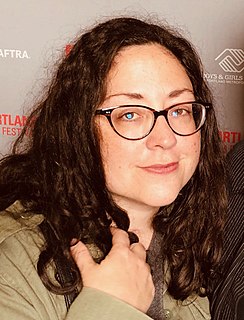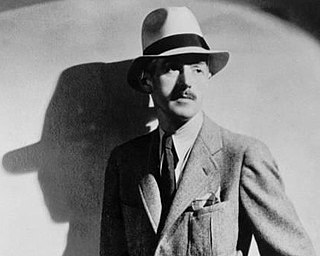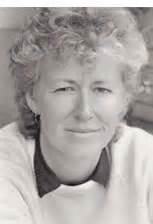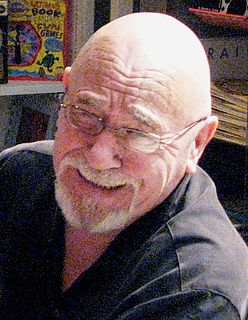A Quote by Leni Zumas
In general, teaching writing makes me a far better reader because there's so many ways to write a good sentence or a good story, and as a teacher I'm obliged to consider them all, rather than staying in the safety of my own tendencies.
Related Quotes
Good writing is good writing. In many ways, it’s the audience and their expectations that define a genre. A reader of literary fiction expects the writing to illuminate the human condition, some aspect of our world and our role in it. A reader of genre fiction likes that, too, as long as it doesn’t get in the way of the story.
I was interested in the ways we can write biography. When you're first starting to write about your own life it feels so shapeless because you don't know how to make your own story cohesive. How do I pluck a story out of the entirety of what it means to be alive. It occurred to me recently that when you're telling a story about your own life, rather than taking a chunk, you're kinda like lifting a thread from a loom.
What I try to do is write a story about a detective rather than a detective story. Keeping the reader fooled until the last, possible moment is a good trick and I usually try to play it, but I can't attach more than secondary importance to it. The puzzle isn't so interesting to me as the behavior of the detective attacking it.
You've got to be a good reader. So whatever genre that you're interested in, read a lot of books about it and it's better than any kind of writing class you'll ever take. You will absorb techniques and then in a lot of cases you can just start writing using the style of the book or the author that you admire and then your own style will emerge out of that. Be a diligent reader and then try to write seriously, professionally and approach everything in writing in a professional way.
If you want help in starting to write memoirs, you don't want to fall into the clutches of a famous writer who has been hired to teach at a writing workshop solely because of his name's ability to attract students, rather than because of any teaching skill. You should not have to grapple with someone who secretly thinks you should be writing about his life rather than your own.
Writing is linear and sequential; Sentence B must follow Sentence A, and Sentence C must follow Sentence B, and eventually you get to Sentence Z. The hard part of writing isn't the writing; it's the thinking. You can solve most of your writing problems if you stop after every sentence and ask: What does the reader need to know next?
A teacher who can show good, or indeed astounding results while he is teaching, is still not on that account a good teacher, for it may be that, while his pupils are under his immediate influence, he raises them to a level which is not natural to them, without developing their own capacities for work at this level, so that they immediately decline again once the teacher leaves the schoolroom.
What really matters in a workplace, what helps an employer if you've got a unionised workforce is if your shop stewards know the rules of the game, if your safety reps are taught to be able to examine situations to make sure the workplace is more safety. Better informed delegates, better workplace safety saves companies money. Unions are very good at safety. We are good at teaching delegates how to resolve disputes.
I wrote about a bird that cleaned a crocodile's teeth. The story was so good that my teacher could not believe that a ten-year-old could write that well. I was even punished because my teacher thought I'd lied about writing it! I had always loved to write, but it was then that I realized that I had a talent for it.
Good writing is the hardest form of thinking. It involves the agony of turning profoundly difficult thoughts into lucid form, then forcing them into the tight-fitting uniform of language, making them visible and clear. If the writing is good, then the result seems effortless and inevitable. But when you want to say something life-changing or ineffable in a single sentence, you face both the limitations of the sentence itself and the extent of your own talent.






































